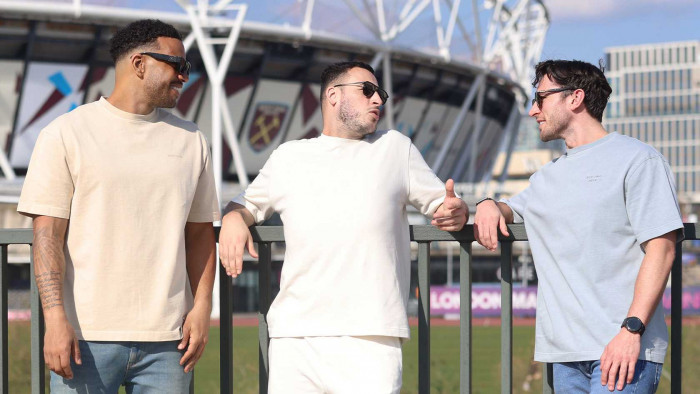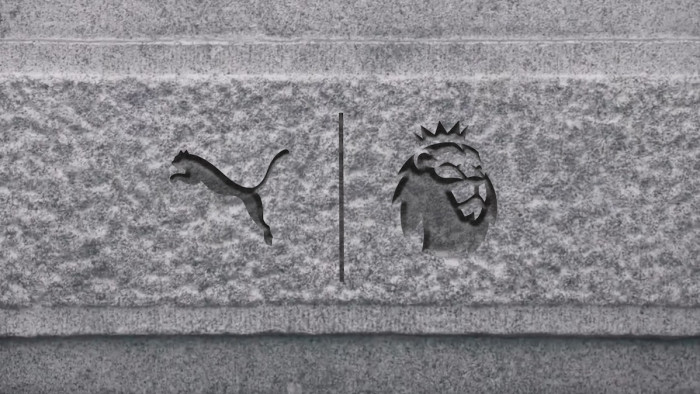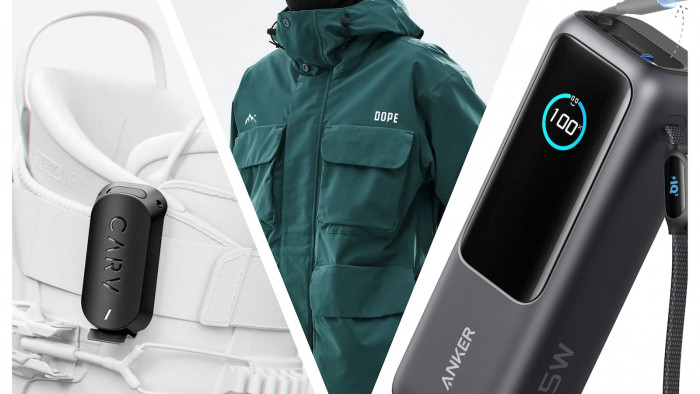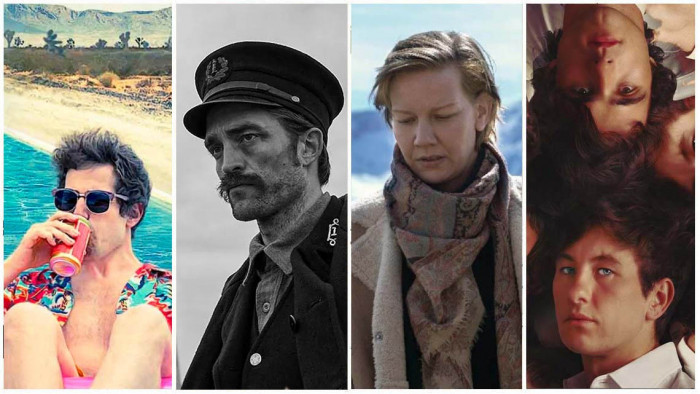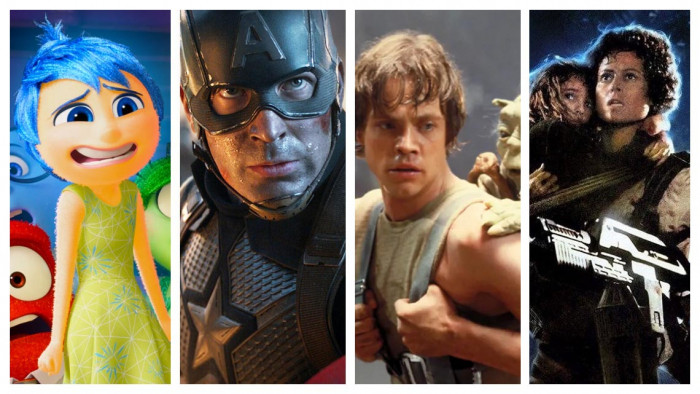'Cool Runnings' is total nonsense, but it's also the best sports movie ever made
Peace be the journey


Cool Runnings isn’t only better than any other sports movie, it’s better than sports. The story of the Jamaican bobsled team’s journey to the 1988 Winter Olympics is as charming, inspiring, heartbreaking and hilarious as films get, despite being almost totally bollocks.
The film follows three Jamaican sprinters who miss out on the chance to compete in the 1988 Summer Olympics after one of them falls and takes the other two down with him. Desperate to represent their country, they put aside their differences, team up with a funny Rastafarian friend and recruit a disgraced former champion bobsledder to train them in that very un-Jamaican sport. They head to the Winter Olympics and hilarity ensues.

It’s really good, genuinely inspiring and surprisingly near the knuckle for a Disney movie (at one point one of the lead characters, Junior, smashes a beer bottle over someone’s head and it’s a bit of character development). The five central performances - Leon, Doug E. Doug, Rawle D. Lewis and Malik Yoba as the bobsledders, and the late, great John Candy as their washed-up coach - are magnificent, damn near every line is quotable (“I am feeling very Olympic today!” “I see pride! I see power! I see a badass mutha who don’t take no crap off of nobody!” “I’ll pay you a dollar to SHUT UP!”), and it’s just a good old time, start to finish. There are wholesome lessons about teamwork, competition and being true to oneself (“If we walk Jamaican, talk Jamaican, and is Jamaican, then we sure as hell better bobsled Jamaican”), a running joke about an egg, and it’s just fun. So much fun, all the way through.
The ending is heartbreaking and beautiful, a completely sincere paean to the spirit of competition. Jamaica’s knackered old bobsled crashes (real footage of the crash is used in the film), but the crew are determined to finish the race, so lift it onto their shoulders and walk the track, proud and dignified even in defeat, as a slow clap turns into a mighty crescendo of applause. The closing text - “the Jamaican bobsled team returned to their country as heroes. Four years later they returned, as equals” - can bring a tear to the eye of even the most cynical of viewers.

It’s all bollocks, of course. In reality, the Jamaican team were welcomed to the 1988 Games with open arms, with another team even lending them a bobsled. Rather than failed sprinters doing it on their own, the team was recruited from the Air Force. They fared poorly because they weren’t very good at bobsledding, and even if they hadn’t crashed, were on course to come dead last. Pretty much everything about the Games themselves is inaccurate, from the structure of the bobsledding competition to the made-up organisation in charge of it. It’s also, uh, called bobsleighing - they only call it bobsledding in America.
Even when setting its historical inaccuracies aside, it’s not a perfect film. There are only about six women in it, including “comedy old lady one of the main dudes has to kiss, ew, gross” and “comedy really strong lady one of the main dudes loses to in arm-wrestling, ew, humiliating”. The white-saviour element of the story is definitely problematic, even given said saviour’s status as a fat drunken disgrace, and some reviewers saw the film as outright racist.
A 2014 Slate piece has the extremely unambiguous headlineCool Runnings Was Not Good, and It Is Definitely Not a “Cult Classic”. Last August - although this is hardly the film’s fault - police in Abaraeron launched an investigation after a carnival float featured four white morons blacking up in what was at best an idiotically misguided attempt to pay tribute to the film. This in turn led to the worst take on the movie on the whole internet, the Wales Art’s Review’s determination that the film’s main characters are “parochial, idiotic, lazy, sexually animalistic, products of an endemic island drug-culture” (there are no drugs in the film, the closest anyone comes to being ‘sexually animalistic’ is the suggestion that Derice likes kissing, lazy people don’t tend to be champion sprinters or feature in lengthy training montages, and only one of the four characters is an idiot, which pretty much lines up with societal norms. You haven’t watched the film, you big twat).

It could obviously have done a better job of not being racist - say, by featuring an actual Jamaican person in one of the lead roles rather than three New Yorkers and a Trinidadian, and more black people behind the scenes rather than the four white writers and white director. Disney executives also had concerns about Jamaican accents. “If it was up to Disney, there would be no accents at all,” Rawle D. Lewis (Junior) later told Empire. “They were so worried about it selling to the Midwest that they kept telling us to tone it down. Every time we went too Jamaican, they were like, ‘Woah, woah! Back off!’”
The ‘90s was the era of the black gangster film, of Spike Lee and John Singleton, Boyz N the Hood and New Jack City. The vast majority of the black-led films that got funded were tales of drugs, gangs and crime. “Cool Runnings was this movie with four black lead characters, and was sort of positive and inspirational,” said Lewis. The cast staged a minor mutiny when director Jon Turteltaub had an idea for scene where they put a spliff in a snowman’s mouth, not wanting to damage the film with negative stereotypes. “I think he might concede, we did perfectly well without that scene,” reflected Doug later.
There are at least two objectively bad elements to the film. Firstly, two characters have comedy names (one, Sanka Coffie, is named after the American coffee brand Sanka Coffee, while another, Yul Brenner, is named after the actor Yul Brynner in a joke that never really has a punchline). Secondly, Brenner carries around a postcard of Buckingham Palace but has never heard of Buckingham Palace - come on, it’s a postcard, it’ll say ‘Buckingham Palace’ on it. Other than that, it’s at least trying, you know? It just means so well as a film - it’s very criticisable but impossible to dislike.

We nearly got a completely different film. The original script was a serious sports drama named Blue Maaga (named after a Jamaican expression meaning deep trouble), which would spend as much time showing its characters growing up in Kingston squalor. Names connected with the project included Jeffrey Wright, Eriq La Salle, Wesley Snipes, Denzel Washington, Eddie Murphy, Marlon Wayans, Cuba Gooding, Jr. and, in the role that eventually went to John Candy, Scott Glenn. Tupac Shakur auditioned and refused to take his nose ring out when asked to.
The script languished in development hell for a few years, until it was re-pitched as a comedy. Producer Dawn Steel championed the project and, thanks to enthusiasm about the other script she was pushing (which became the box office smash Sister Act) was allowed to make the film. Disney didn’t have enormously high expectations, but the cast knew they were making something special, especially John Candy, who lobbied hard for the role Disney had envisioned Kurt Russell in. The story of real-life coach Howard Siler was changed to make the fictionalised version a slovenly, disgraced alcoholic in order to make Candy’s casting make sense.
“You know, John Candy took a pay cut to make this film,” recalled Lewis. “He pulled us aside and said, “Listen. I’m from Canada. I was there. Disney have no idea of the power of this film. They just think they have a little movie on their hands, to make a bit of cash.” The rest of the cast were largely unknown. Leon was the most recognisable, having starred as Jesus in Madonna’s Like a Prayer video in 1989, but was hardly a household name. Doug was a stand-up comic, Yoba a struggling musician and Lewis the stand-in the casting company had hired to read with auditioning actors. Most of the posters didn’t even feature Candy, the only genuinely famous cast member.

But it came out and was a hit, faring vastly better critically and at the box office than had been expected (lining up almost exactly with Rawle D. Lewis’s on-set prediction of $100 million), and becoming a genuine phenomenon on home video.
The movie’s legacy is huge. Jamaica has two Bobsled Cafés inspired by the film, including one in Montego Bay airport, which have it constantly playing silently on loop. The four main cast members have things like “You wanna kiss my egg?” shouted at them daily. One of then, Malik Yoba (Yul), dated Miss Jamaica for a while. The real Jamaican bobsleigh team nearly missed out on the 2014 Olympics in Sochi, but a crowdfunding campaign inspired by Cool Runnings got them there.
It’s on school curriculums, used to teach people about teamwork and motivation, and has been cited by various Winter Olympians, including American slopestyle skier Nick Goepper, Swedish skier Henrik Harlaut and Indian luger Shiva Keshavan as an important influence on their careers. It also led us to a world where the current Jamaican bobsled team (the ladies’ one - the men’s team didn’t qualify this year) are this badass and inspiring:
Why did it strike such a chord with people? The same reason people fell in love with Eddie the Eagle, who was failing at the same Games and would one day have a similarly glamorised account of his escapades make it to the big screen. The traditional sports movie narrative takes a rag-tag bunch of misfits and uses montages and surmountable setbacks to get to a point where they pull off an unlikely but well deserved victory. In Cool Runnings they don’t manage the last bit - they crash out spectacularly.
Director Jon Turteltaub described the message of the movie as, “Not only can David beat Goliath, he can have a great time doing it”, but it’s about more than how much fun these four dudes are. There’s a dignity in losing if you do it well. As Derice, Sanka, Yul and Junior walk beautifully down that bobsled track, Tallulah (their bobsled) held aloft even as their dream of victory lies in shatters, they’re fucking champions. It’s glorious. It’s the most stirring, fist-clenching, we-goddamn-did-it, magnificent display of pride, of dignity, of hope, of togetherness, that you’ll ever see in a film. The slow clap might be one of the biggest cliches in movies, but Jesus Christ, this one earns it.
Accuracy be damned, it’s incredible. Feel the rhythm. Feel the rhyme. Get on up. It’s bobsled time.
[Important note: Tears were choked back nine times during the writing of this piece.]
